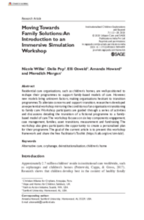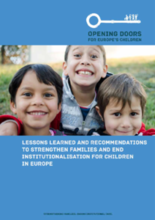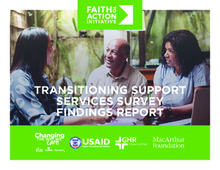Displaying 121 - 130 of 662
This animated video from Alternative Care Thailand tells the story of a boy in Thailand who is sent to live in an orphanage because his mother feels she is unable to care for him at home, his experiences with volunteers once he arrives at the orphanage, and how the orphanage transitioned to supporting children to live in families.
This study assesses the present situation of the deinstitutionalisation and alternative care arrangements in exile settlements concerning various cultural and socio-structural factors.
This article will make a case for investing in families and communities rather than orphanages by putting a spotlight on ECFG member investments in Asia.
In the current article, the cognitive, emotional, mental health, and behavioural benefits of deinstitutionalisation for children with varied disabilities in India and UK are discussed.
The goal of the current article is to present this workshop framework and share the free Facilitator’s Toolkit.
This special issue of the Institutionalised Children Explorations and Beyond journal, guest-edited by Delia Pop, Tessa Boudrie and Mark Riley of Hope and Homes for Children, focuses on deinstitutionalization in South Asia.
Based on the information gathered throughout the course of the Opening Doors for Europe’s Children campaign, this final report first reflects on: (1) the rationale for the campaign and how it operated; (2) the progress towards child protection system reform across campaign countries as well as the developments at the EU level; and (3) the lessons learnt from the campaign and some final recommendations to the European Union.
This chapter traces and explains responses to deinstitutionalisation reforms in the Russian regions. Three parallel policy shifts are taken into account: deinstitutionalisation (DI), public sector reform, and social provision reform.
In this chapter of Reforming Child Welfare in the Post-Soviet Space, the authors analyse how children in foster care in Russia perceive their experiences in foster families through the use of biographies.
This study seeks to map the landscape of support for transitioning residential care centers, specifically considering organizations or individuals who are providing or could provide assistance through on-the-ground, individualized coaching or technical support.






